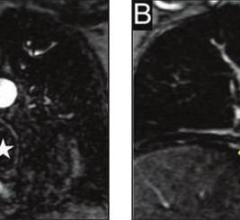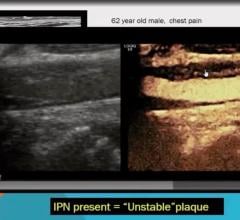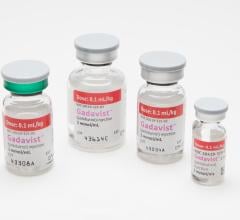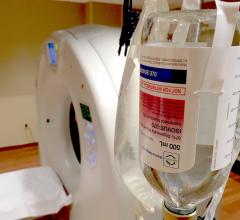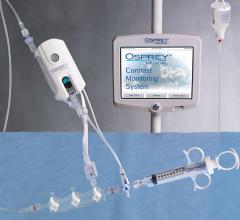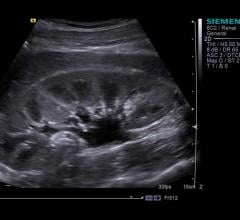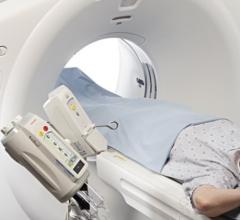March 21, 2013 -- Guerbet announced that the U.S. Food and Drug Administration (FDA) has approved Dotarem (gadoterate meglumine), a gadolinium-based contrast agent (GBCA) indicated for intravenous use with magnetic resonance imaging (MRI) in brain (intracranial), spine and associated tissues in adult and pediatric patients (2 years of age and older) to detect and visualize areas with disruption of the blood brain barrier (BBB) and/or abnormal vascularity.
Dotarem — which has been commercialized widely throughout the world since 1989 and more than 37 million doses administered[1] — is the only macrocyclic and ionic GBCA. The recommended dose is 0.2 mL/kg (0.1 mmol/kg) body weight (BW). Dotarem injection 0.5 mmol/mL contains 376.9 mg/mL of gadoterate meglumine, and is available in vials and pre?filled syringes.
“This approval is a major milestone for Guerbet, which has a proud history of providing safe and effective contrast agents to patients worldwide,” said Yves L’Epine, CEO of Guerbet Group. “Dotarem — already a leader in Europe — is a compelling new CNS imaging option for U.S. healthcare providers and enriches our portfolio for improved patient management with diagnostic imaging in the U.S.”
MRI has become the mainstay of central nervous system imaging since its introduction more than 20 years ago. It is estimated that there were more than 10 million contrast-enhanced MRI examinations performed in the United States in 2011, with approximately 60 percent of these examinations performed to image the CNS.
The possibility of serious or life-threatening anaphylactoid/anaphylactic reactions with cardiovascular, respiratory or cutaneous manifestations, ranging from mild to severe, including death, should be considered.
In patients with chronically reduced renal function, acute kidney injury requiring dialysis has occurred with the use of GBCAs. The risk of acute kidney injury may increase with increasing dose of the contrast agent; administer the lowest dose necessary for adequate imaging. Screen all patients for renal impairment by obtaining a history and/or laboratory tests. Consider follow-up renal function assessments for patients with a history of renal dysfunction.
Side effects to Dotarem were uncommon in clinical trials. However, the most common adverse reactions associated with Dotarem in clinical studies were nausea, headache, injection site pain, injection site coldness and burning sensation.
For more information about Dotarem, including full Boxed WARNING, please see the Full Prescribing Information.
Clinical Studies
The Dotarem New Drug Application included two Phase III clinical studies. These studies evaluated the diagnostic efficacy and safety of Dotarem for intravenous use with magnetic resonance imaging (MRI) in brain (intracranial), spine and associated tissues in adult and pediatric patients (2 years of age and older) to detect and visualize areas with disruption of the blood brain barrier (BBB) and/or abnormal vascularity. Both phase III studies evaluated the superiority of the enhanced images over the unenhanced images for central nervous system (CNS) lesion visualization in all three co-primary endpoints. All defined primary and key secondary efficacy analyses were met and support the efficacy of Dotarem at a standard dose of 0.1 mmol/kg BW. In addition to these two studies, 21 supportive clinical studies evaluated the efficacy and safety of Dotarem-enhanced MRI.
For more information: www.guerbet.com


 August 17, 2023
August 17, 2023 
